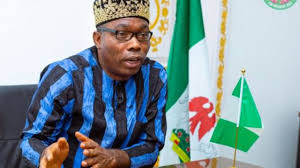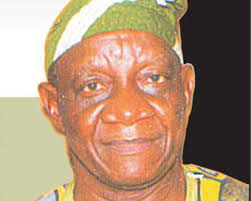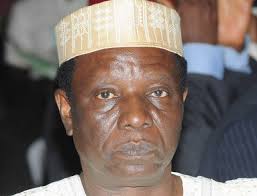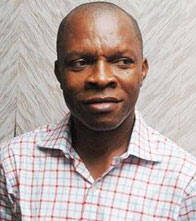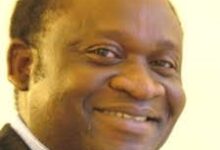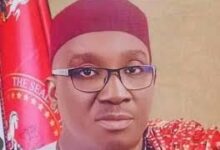Obasanjo, Carter and Abacha, by Patrick Omorodion
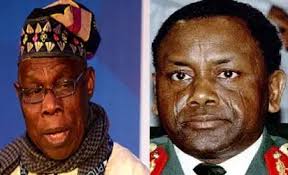
Obasanjo, Carter and Abacha Sports serves as a diplomatic tool to promote cooperation,
understanding, and peace between nations. It can also be used to enhance a country’s image and foster better relationships amongst the peoples of the world.
However, countries and their leaders oftentimes use it to fight injustices. And most often athletes and administrators are the pawns these countries and leaders use on their Chess boards of war.
I have always respected Dr. Segun Odegbami since my path and his crossed in sports through the famous Shell Cup football competition for secondary schools in Nigeria.
I brought Odegbami into this piece because through him, I got to know the difference between two leaders, Olusegun Obasanjo, a former military Head of State of Nigeria and Jimmy Carter, a former president of the United States.
Both leaders were at the helm of their countries affairs almost at the same period, Obasanjo from 1976-1979 while Carter from 1977-1981. No wonder they bonded together.
I was actually a young secondary school student in 1976 when Obasanjo led other African countries to boycott the Olympic Games hosted by the Canadian City of Montreal.
It was as a result of the International Olympic Committee, IOC’s refusal to exclude New Zealand from the Games as requested by the Organization of African Unity, OAU.
New Zealand had allowed their Rugby team to visit South Africa to play at a time the Apartheid regime had massacred about 600 school children in Soweto.
Over 20 African countries’ athletes, including Nigeria, were already on ground in New Zealand. Obasanjo as Head of State and, following the decision of the OAU, ordered the Nigerian contingent back home. Odegbami was a member of the football team that year.
A similar boycott of the Olympics took place four years later when then Soviet Union capital, Moscow hosted in 1980. It was at the behest of the United States in protest of the invasion of Afghanistan.
Nigeria who boycotted the Montreal Olympics refused to join the United States orchestrated one despite the closeness of Obasanjo to Carter even after Muhammad Ali travelled down here to convince the leadership to join.
Obasanjo and Carter won the diplomatic wars using sports to cause a massive boycott of both Olympics but, according to Odegbami, Carter won the hearts of American athletes who, like their Nigerian counterparts in 1976, had suffered their bodies preparing for the Games which is the dream of every athlete.
What did Carter do? Odegbami reported penultimate Saturday in his Column titled ‘Between Jimmy Carter and Allen Onyeama’ that “He (Carter) invited the affected American athletes to the White House, feted them, recognized them officially in America as Olympians, and decorated them with the US Congressional Award, the highest civilian honour in the USA”.
How did Obasanjo treat the Nigerian contingent who were thrown out of the Olympic Games Village like pieces of rags after the boycott? He ignored them, not even a handshake reception on their return. Other Heads of State and presidents after Obasanjo also forgot about the athletes’ sacrifice till today.
Again it took an ideas man like Odegbami for the ‘labour of our heroes past’ not to been in vain. His friendship and partnership with a patriotic and humble Nigerian, Allen Onyeama, brought the memories of the 1976 Olympic Games boycott to the front pages once again.
Through Odegbami, what Obasanjo didn’t do for Nigerian athletes but Carter did for American athletes who sacrificed their dreams like their Nigerian counterparts, Allen did by wiping away tears from the 1976 heroes and heroines.
Like Odegbami pointed out, Allen did for the 1976 athletes more than what Carter did for the 1980 American athletes.
The Hall of Fame with the names of all the athletes which Allen constructed within the premises of the Nigeria Institute of International Affairs, NIIA in Lagos will remain an everlasting national monument.
He also ensured that as ‘Ambassadors of Airpeace’, his airline, these heroes and heroines will “fly free-of-charge and in Business Class, on any domestic route in Nigeria any number of times, and on one international flight a year, to any destination around the world where Airpeace flies to, for the rest of their lives.”
A laudable effort by a single individual which the government hasn’t done for any sports hero, dead or alive.
Even for his effort, Allen hasn’t been honoured by the Nigerian government for doing what it was supposed to.
Another military leader, General Sani Abacha, now late, also used sports, football in particular, to fight an undiplomatic war against former president of South Africa, Dr. Nelson Mandela.
That was during Abacha’s despotic reign as Head of State, when he sentenced Ken Saro-Wiwa to death by hanging.
Despite pleas from Mandela and other world leaders to spare Saro-Wiwa and other Ogoni men slated for the hang-man’s noose, Abacha still killed them.
Mandela condemned the action and called for the expulsion of Nigeria from the Commonwealth.
In retaliation, Abacha pulled out the Super Eagles from the 1996 AFCON in South Africa which they were supposed to attend as defending champions.
He gathered the players in Abuja and told Peter Rufai, then captain, to tell his teammates why they shouldn’t go for their title defence.
It was totally the personal ego of Abacha and the players threw away national interest for a ‘mess of porridge’ allegedly offered them by the bespectacled dictator.
Till today, the names of those players, rather than be etched on the Hall of Fame at the NIIA, are forever etched on the Hall of Shame on the minds of disappointed Nigerians.

